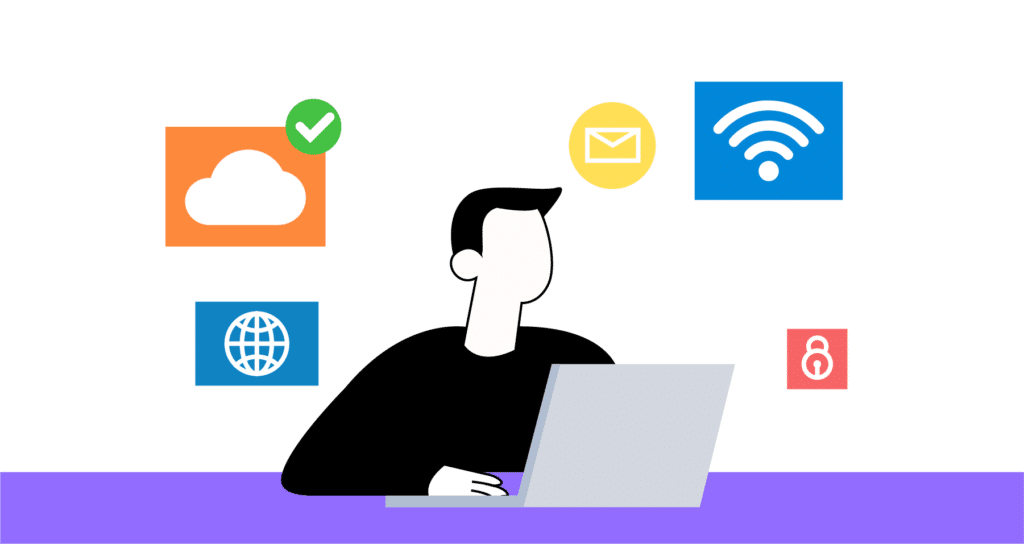Digital marketers spend hours crafting emails. The emails are carefully crafted for business promotion or customer retention. However, the emails get winded up in spam boxes when email authentication protocols are not used. In addition, phishing and spoofing attacks are more sophisticated these days. Thus, email authentication protocols are more important now than ever before. The article discusses the significance of email authentication, protocols, and how it helps build your brand. Please continue to read to save on your email marketing service.
Email marketing service
A survey says the average return for email marketing strategy has reached over 44 times every dollar spent on marketing. In addition, over 66% of customers claim that emails persuade them to be better towards the company. Email marketing is better than other marketing strategies or social media platforms. Therefore, companies are making efforts to increase their 'open rates' and, from there, increase their sales. However, the report says that over 21% of marketing emails are sent to spam boxes.

1. Mailbox providers trust you
The mailbox providers like Gmail or Outlook look for authenticated senders. They consider the emails legitimate when sent by a legitimate sender. Therefore, implementing Email authentication tools is the best practice. Email providers use authentication protocols such as ISP to identify the email's sender. Thus, email authentication increases email deliverability.
2. Affects customer's trust
Customers look for brand value when purchasing. Recent research says customers prioritize brand value over their favourite goods or services. Over 39% of customers permanently boycott their famous brand if they are against high principles. The report also claims that over 24% want to take a break from the brand. On the other hand, the research said almost 52% of customers are inclined toward sustainable brands. Losing trust through spoofed emails and malicious emails decreases the customers' trust. They are also more unlikely to return to your brand.
You must prove to ISPs that your marketing emails are legitimate and don't harm the receivers. To do this, you have to implement email authentication protocols. Due to the increasing number of intelligent spammers, email authentication services are mandatory. In addition, it protects your domain and customer experience.
Role of ISP in email authentication

Internet Service providers are working towards verification and controlling the number of emails. ISP examines the emails' source and verifies whether they are legit. ISP has the power to block your emails if it finds you suspicious.
ISP can block your emails if they find your company sending consistent spam emails to customers or users. They have the power to stop future emails. ISP can also block generalized emails. When customers dislike generalized emails and mark them as spam, ISP will evaluate your future emails and likely block you. On the other hand, ISP looks for IP reputation and domain reputation.
If your company owns a shared IP address, it negatively impacts email deliverability due to the wrong actions of other users. Similarly, ISPs highly consider the reputation of your company name/domain name.
If your domain had only sent spam messages and malicious emails in the past, the domain would have created a bad reputation. Hence ISP will likely block your emails. Therefore, having a healthy relationship with ISP can strengthen your email campaigns. Deploying an efficient CRM like SWIFT helps increase the email origin's trustworthiness. The higher standards set by the CRM help in improving email deliverability.
What is SPF, and how does it work?
The Sender Policy Framework is an email authentication protocol. It verifies the sender's identity. If you don't use the SPF protocol, your messages will appear as an unverified sender. Therefore, the recipient server will reject your emails. SPF compares the IP address of the sender's server to the list it already has authorized from a specific domain. ISP uses the SPF record to check the sender's IP address. The recipient will review the published SPF record by implementing the SPF protocol.
Once detected, it searches the authorized list of addresses for the detected record and then validates it. If the detected record exists in the approved list, it marks "Pass". Therefore, the malicious sources are quickly identified through the protocol. SPF protocol helps improve email reputation and ensures that future emails are not blocked.
Role of DKIM in email authentication
The DKIM protocol uses a digital signature that helps verify the message's sender. As these signatures are added like headers and are unique to every legit sender, they help detect whether the sender is legitimate or not.
Also, they work in forwarded messages. It uses two keys that make DKIM work. Administrators generate a public key, and a private key is transported to the recipient for verification. This private key is the digital signature at the email header. DKIM signatures help prevent email spoofing and identity theft.
Implementing the DKIM protocol is essential. Otherwise, the inbox providers might block your emails from reaching your potential audience. Even if a small number of your emails are blocked, it can potentially create enormous consequences for your business.
What does DMARC do in email authentication?
Domain-based Message Authentication, Reporting and Conformance is an email authentication protocol. It uses a framework that combines both SPF and DKIM. Thus, DMARC can prevent email spoofing and phishing effectively. DMARC verifies both the SPF and DKIM records to pass the email sent. It verifies whether the sender domain matches the domain used in the content's authentication. The DMARC record is presented alongside the DNS record, which directs the domain owner when the spoofed email is detected. The spoofed email is sent directly to the spam box based on the instruction.
Similarly, DMARC monitors the essential details. It protects the senders' identity and email authentication. DMARC protocol looks for the following conditions to pass the email sender:
- Does the content have a valid, validated DKIM signature?
- Does the Sender's IP address match any of the authorized senders in the SPF records?
- Do the headers pass the alignment tests?
Building a brand name takes years and consistent effort. For example, do you know that email authentication affects your brand name? and it, in turn, affects your sales? Creating a brand could be a challenge but worth all the effort! Want to know the steps involved in brand creation?
Consider checking out our blog, which discusses the essential steps required to create a brand for your company.
Conclusion
Email authentication is not just about security. It also helps in increasing email deliverability. Overall, email authentication protects your brand and yields results for your email campaigns. Also, watching your domain with authentication protocols helps to improve reputation scores.
Most importantly, it protects your domain from being used for spoofing purposes. Investing in an efficient CRM like SWIFT could be the best solution for your business. SWIFT from Zone helps you synchronize your email information with CRM. It helps you communicate with your employees and potential leads without worrying!
